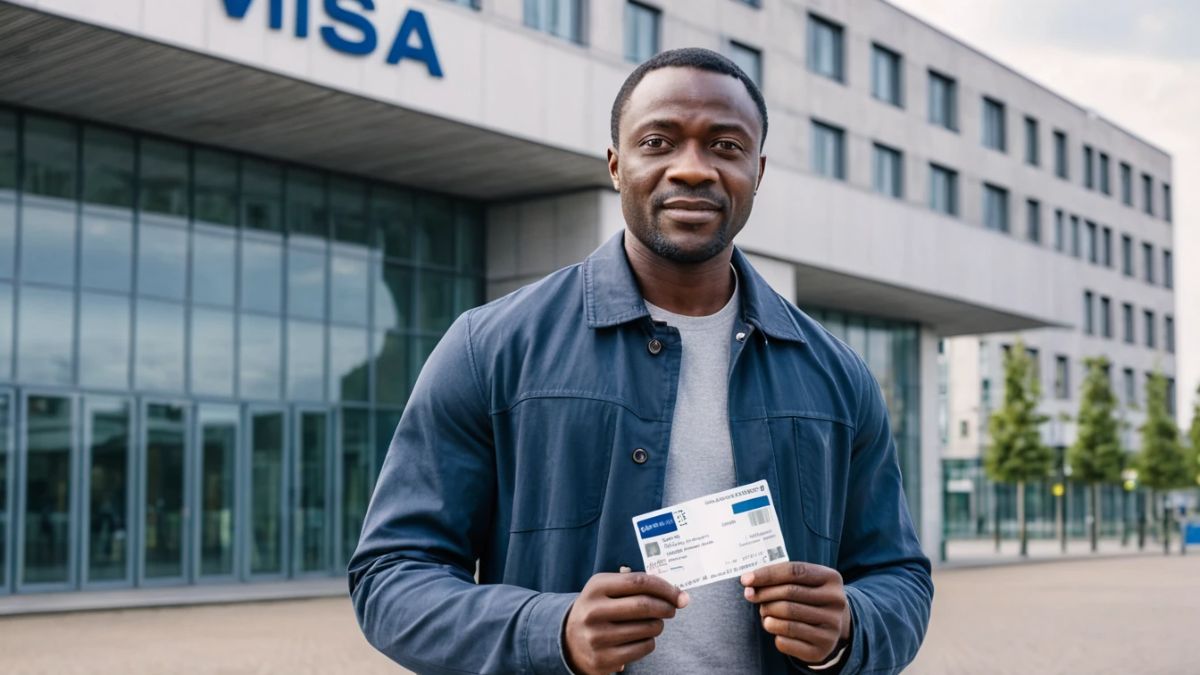Introduction
Getting a nursing job abroad can feel overwhelming—especially with all the paperwork, language barriers, and unclear steps. But today, you’re about to hear from someone who did it successfully.
In this exclusive interview, we speak with Grace, a 29-year-old Nigerian nurse who recently moved to Germany after securing visa sponsorship as a healthcare worker.
Grace’s story is not just inspiring—it’s practical. She walks us through every stage of the journey, from validating her qualifications to receiving her German visa and landing her first job in a German hospital. Whether you’re just starting or already preparing for a move, her path offers a real-life roadmap you can follow.
Who Is Grace?
Grace is a 29-year-old registered nurse from Benin City, Nigeria. She completed her nursing degree at the University of Benin Teaching Hospital and earned her NMC license in 2017. After working in both private and public hospitals for over five years, she started exploring opportunities to move abroad in 2022.
So why Germany?
“I considered the UK and Canada,” Grace explains, “but Germany had fewer upfront costs, and I was really attracted to the high demand for nurses and the quality of life.”
She officially began her process in October 2022, and landed in Germany by March 2024.
Grace’s Step-by-Step Journey to Nursing in Germany
Step 1: Validating Nursing Qualifications in Nigeria
Grace began by gathering all her academic and professional documents. She applied through the German state’s nursing recognition authority (Anerkennungsstelle) to assess her credentials.
She submitted:
-
Degree certificate
-
Transcript
-
NMC license
-
Proof of clinical practice hours
It took about 4 months to receive a “deficit letter” which stated she would need further training or supervised practice in Germany to be fully recognized.
Step 2: Meeting the Language Requirements
Unlike English-speaking countries, Germany requires nurses to speak German at least at B1 or B2 level, depending on the federal state.
Grace chose to study at home using online platforms and eventually took the Goethe B2 exam, which she passed on her second attempt.
“Learning German was the hardest part, but consistency helped. I studied for 90 minutes daily for almost 8 months.”
Step 3: Finding a German Employer Willing to Sponsor
Once she had her language certificate and deficit letter, Grace used the official Make it in Germany portal to find job openings.
She applied to over 15 hospitals before receiving an offer from a mid-sized clinic in North Rhine-Westphalia.
Her employer agreed to:
-
Provide a visa sponsorship letter
-
Help her complete her recognition process
-
Pay for her adaptation training on arrival
Step 4: The Visa Application Process
With a job offer in hand, Grace booked a visa appointment at the German Embassy in Abuja.
Documents She Submitted:
-
Valid international passport
-
NMC Nigeria license
-
University transcripts and certificate
-
B2 German language certificate (Goethe)
-
Deficit letter from the German authority
-
Signed employment contract
-
Police clearance certificate
-
Medical fitness report
-
Visa application form and cover letter
Visa processing took 8 weeks, and she was granted a long-stay national visa (Type D).
Step 5: Arrival and Onboarding in Germany
Grace arrived in Germany in March 2024. Her employer arranged a furnished shared apartment and enrolled her in a 6-month adaptation program, which included on-the-job supervision and additional training.
“The first few weeks were tough. The hospital system was different, and I had to adjust to the culture, but the staff were supportive.”
She is currently preparing for her final knowledge test (Kenntnisprüfung) to receive full professional recognition as a nurse.
Documents Grace Submitted
Here is a checklist of the documents Grace used throughout her application:
| Document | Purpose |
|---|---|
| International Passport | Identification and visa |
| NMC Nigeria License | Proof of nursing qualifications |
| University Transcripts & Certificate | Academic validation |
| B2 German Language Certificate (Goethe) | Language requirement |
| Deficit Letter (Anerkennungsbescheid) | Recognition process document |
| Employment Contract | Proof of job offer |
| Police Clearance | Security clearance |
| Medical Fitness Report | Health requirement |
| Visa Application Form & Cover Letter | Visa processing |
Grace’s Top Advice to Other Nigerian Nurses
-
Start learning German early — don’t wait for a job offer to begin
-
Use official platforms like Make it in Germany and hospital career pages
-
Avoid unlicensed agents who charge high fees without transparency
-
Keep certified copies of every document, and back them up digitally
-
Stay patient and consistent — the process takes time but is achievable
Challenges She Faced — And How She Overcame Them
Language Barrier:
Grace found German grammar frustrating. She joined online communities and took free practice sessions on YouTube and Duolingo.
Recognition Delays:
The evaluation process took longer than expected, but she stayed in touch with the recognition authority and followed up every 3 weeks.
Visa Waiting Period:
Embassy dates were limited, so she applied early and monitored openings every morning.
Culture Shock:
From food to work routines, things were different. She joined a Nigerian nurses group in Germany for support.
Conclusion
Grace’s story shows that nursing visa sponsorship in Germany for Nigerians is not just a dream — it’s a structured, legal, and achievable path. With dedication to the language, document preparation, and verified job applications, it’s possible to start a new life and career in Germany.
If you’re a nurse in Nigeria and want to explore similar opportunities, this is the time to act. Begin with your German language preparation and research official portals.
Explore more real stories and visa guides for Germany on Visa News.
Frequently Asked Questions (FAQ)
Do I need to speak German to work as a nurse in Germany?
Yes. Most federal states require B1 or B2 level German, proven through certificates like Goethe or Telc.
How long does the visa process take?
From job offer to visa issuance, the process can take 4 to 8 months, depending on how quickly you meet the requirements.
Can I apply without an agent?
Absolutely. Many nurses successfully apply directly through hospital websites or government portals like make-it-in-germany.com.
Is my Nigerian nursing degree accepted in Germany?
Your degree will need to be evaluated by a German authority. Most Nigerian degrees are accepted but may require adaptation training or a knowledge test.
How much does it cost from start to finish?
Estimated total cost:
-
Language training: ₦300,000 – ₦500,000
-
Document translations & certifications: ₦150,000+
-
Visa fees & travel: ₦700,000 – ₦1,200,000
Costs vary depending on language schools, visa type, and living arrangements.















